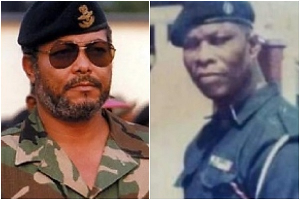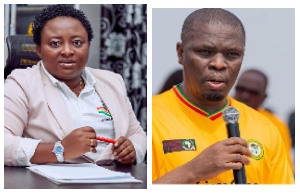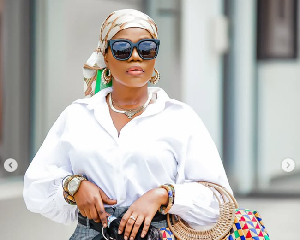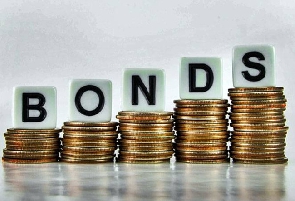By Kwasi Adu
In the midst of all the debate about Cote d’Ivoire, Gbagbo, Ouattara, military invasion, etc, I met a friend who is always full of jokes. He stopped me and asked; “What do NPP and Alassane Ouattara’s RDR have in common”? I stood there bemused. He asked again. I put on a wry smile, an indication that I needed help. He chuckled, wriggled his hands and said: “When they cannot win the political debate, they initially retreat and then come back waving the ethnic flag”. He smiled with that sort of satisfaction, which indicated that he had had one over me. As he walked away with a swagger and a sort of deliberate spring in his footsteps, I thought: “He has a point there”.
It set me thinking. Then the similarities started flooding in. They both use violence to gain political advantage. They both believe in the philosophy that only the elite in the society should have privileges (NPP calls it “property-owning democracy”). When they want political power, they would use both fair and unfair means, including rigging (just as in Ashanti Region in 2008 where NPP secured 139% of the votes in some constituencies). Above all, they are both faithful adherents of Houphouet-Boigny, the first President of Cote d’Ivoire.
That’s it! That is why the NPP is asking President Mills to invade Gbagbo and secure the Ivorian presidency for Ouattara. It explains that their demand for the Ghana government to join an invasion force has nothing to do with the whether or not the November 2010 presidential run-off was free or fair. Indeed, they do not care about the now known fact that there was widespread cheating in the north, which could have seriously affected the results. Even more crucial, the NPP does not care that the Cote d’Ivoire Electoral Commission should have declared results in which the number of people who voted is more than the number of registered voters. In the minds of the NPP, one plus one is no longer two (1+1=?). According to the Cote d’Ivoire Electoral Commission, one plus one is now five (1+1=5), and the NPP agrees. Wonders will never cease.
In effect, the motivation of the NPP is not about free and fair elections in Cote d’Ivoire; it is more about their wish that their political friend should wear the crown, even if by foul means. However, the NPP is trying very hard to mask their stance under some cloak of “respect for ECOWAS and AU decisions”.
On the surface, their reason is that since the ECOWAS, AU, and the UN, goaded on by the United States of America, (USA) and France are saying that Gbagbo lost the elections, and then we should go to war. They say this even as, at the same time, they agree that Ghana’s economy is in the doldrums. “Enko yie”, is the way that they put it. The question that they ignore to answer in this matter is where the Ghana government is going to get the money to wage war if the economy is not able to sustain Ghanaians.
The other question about Cote d’Ivoire elections that the NPP is ignoring is whether they have seen the electoral figures that declared Alassane Ouattara winner. Surely, they cannot claim not to have seen them; because if they have not, then they have no basis to claim victory for any one side.
No NPP member would accept election results declaring the NPP as losers where the number of votes for their opponents is more than the number of registered voters. In 2008, I remember seeing Peter Mac Manu on television threatening to protest against results in the Volta Region, because according to him, there had been violence against their party agents in that region. In order to justify that claim, some NPP members planned to deposit dead bodies in the Volta Region to justify their claim of NDC violence and rigging.
The question then arises as to why the same NPP now expects Laurent Gbagbo to accept election results in which, in several places, the number of voters exceeded the number of registered voters, and where independent observers had declared that there had been massive incidents of ballot box snatching, beatings and killings of Gbagbo’s party agents etc.
The problem of the NPP is that they keep “bobbing and jiving” around the issues of free and fair elections, democracy, human rights, and rule of law without really meaning it.
If they were genuinely committed to all these freedoms, then they need to explain why they and their predecessors love Houphouet-Boigny of Cote d’Ivoire so much. They harangued and continue to harangue Dr. Kwame Nkrumah for what they describe as Nkrumah’s abuse of freedoms. While they were doing these, they continued to see the Houphouet-Boigny government as a beacon, which everyone should emulate.
President Houphouet-Boigny, in his time in Cote d’Ivoire, did not respect any of the freedoms to which the NPP claim to adhere. Houphouet set up a one-party state. I remember that when I was young and used to travel to Cote d’Ivoire, it was almost a crime for any Ivoirians not to have in their possession the PDCI Party card. Whenever they stopped a vehicle, the Ivoirian gendarmes were more merciful on Ghanaians travelling without passports than on Ivoirians who did not have the PDCI card. The PDCI was Houphouet’s party- the only legal party. His hatred of fundamental freedoms was so intense that he even banned the studying of Political Science in educational institutions in the country. In spite of these, the NPP and their predecessors loved him to bits.
The question then arises why the NPP would lambast Nkrumah for introducing a one-party state in Ghana while at the same time, they adored Houphouet-Boigny who also had instituted the same? In 1982 when people such as Gbagbo were agitating for multi-party politics, free expression, etc, the NPP people were the greatest friends of Houphouet-Boigny. Abidjan became their Mecca where they regularly congregated and consorted. They even had a shadow army with which they were planning to invade Ghana. In the end, Gbagbo had to go into exile, leaving the country for the NPP people and Houphouet-Boigny.
Indeed, during the reign of Dr. Kwame Nkrumah, the forebears of the NPP regularly plotted with Houphouet-Boigny with the sole objective to overthrow the Nkrumah government. It did not register with them, at the time, that they were asking a one-party government to overthrow another one-party government. It is therefore safe to say that when the NPP say that they abhor “dictatorship”, that is not what they really mean. What they really mean is that they are not the ones in charge of the dictatorship.
It is also safe to say that the NPP and their forebears never really care(d) about free and fair elections, as a process for achieving political power. They never liked it when they lost the 1951 elections; so they started slashing people with cutlasses and burying pregnant women alive. What happened next was appalling. They asked the colonial government to organise another elections, hoping that by 1954, they would have terrorised CPP supporters into the bush. When they lost that one too, they called for the Ashanti region to secede from Ghana. They then sent a delegation to the Queen, to ask the British government not to grant independence to Ghana. In effect, they did not want independence if that independence was not going to result in them being the rulers. They were not interested in the will of the people as expressed in the 1954 elections. From then on, the “Matemeho” people refused to attend any meeting to discuss independence.
When the colonial Governor went to Kumasi to mediate between them and the CPP, they pelted him with stones. When the third elections were held in 1956 and they lost that one as well, they then resorted to attempts to overthrow the new government. By 1958, R.R. Amponsah, the General Secretary of the UP went and bought hundreds of military attires and accoutrements from London to come and stage a coup.
In the history of Ghana, the NPP and their people have accepted only three elections results: the 1969 one, which Afrifa cooked for them; the 2000 one and the one in 2004 when they declared themselves winners. The similarity between the NPP and Ouattara’s RDR were becoming clearer.
Firstly, they both believe that in any society, only the elite should have privileges. That is what made them regard CPP supporters as “veranda boys”. That is also what their friend, Houphouet believed in. Left with Houphouet-Boigny alone, Ouattara would have been a perfect choice to replace him to continue with his “legacy” of elitist government.
They do not respect election results if they are not the ones who are declared the winners. Look at the mayhem that they unleashed in this country between 1951 and 1966. In 1992, the rejected the election results and wrote “The Stolen Verdict”. According to one of the members of the NPP’s Council of Elders, Mr. Appiah-Minkah, the NPP planned to plunge the country into a civil war when they lost the elections in 1992 (see Africa Watch; June 2010). In 2008, in spite of the massive intimidation of voters in the Ashanti Region, they were, in addition, looking for dead bodies to deposit in the Volta Region in order to have the election results in those parts annulled. When Ouattara was disqualified from contesting the elections in the 2000, he retreated to the “North” and declared war with the Forces Nouvelles. It is not for nothing that he became known as “Father of the Rebellion”.
Another common factor shared between Ouattara’s Rally of the Republicans (RDR) and the NPP is that whenever they do not win the political argument, they retreat and come back with guns blazing - and machetes shining - under the ethnic flag.
The forebears of the NPP, after losing the 1951elections, wrapped themselves in the ethnic flag, and came fighting as tribalists. They formed the National Liberation Movement (NLM) in Ashanti, the Ga Shifimo Kpee in Accra, the Togoland Congress in the Volta Region, and the Northern Peoples Party (NPP) in the north, when they wreaked acts of terrorism throughout the country. Ouattara found solace in rallying around people from the north of Cote d’Ivoire when he realised that it was his only hope of winning power. They do these things although when it comes to the crunch, they do not give a damn to the interests of the poor among the tribes on whose shoulders they rely to get the political power.
The NPP prefer Ouattara mainly because, in reality, his party (the RDR) is part of the marriage of convenience between him and Konan Bedie, called the “Rally of Houphouëtistes”. Just the mention of the name, “Houphouet”, is enough to make the mouths of NPP people water.
It has not been lost on me that in 2009, during the parliamentary vetting of President Mills’ nominees for ministerial appointments, the NPP Minority Leader asked one of them: “Politics is about sharing the national cake, you get me”? It is obvious, from the way that they shared among the NPP elite executive government bungalows and lands meant for government offices, that in the estimation of the NPP, all that matters in politics is the grabbing of state assets. That is why they are so desperate to win power “by all means”. At least, this is what their flag bearer, Nana Akufo Addo has stated. Mr. Abayifa Karbo, the NPP National Youth Organiser has clarified that “By all means” when he stated that the NPP shall turn Ghana into Afghanistan if the do not win the elections in 2012. That is typical Ouattara style. We should all brace ourselves.
In the end, the NPP’s claim to democracy, rule of law, human rights etc is what Henry Fielding describes as “an endeavour to avoid censure by concealing our vices under an appearance of their opposite virtues”. He was describing hypocrisy.
Opinions of Wednesday, 26 January 2011
Columnist: Adu, Kwesi


















